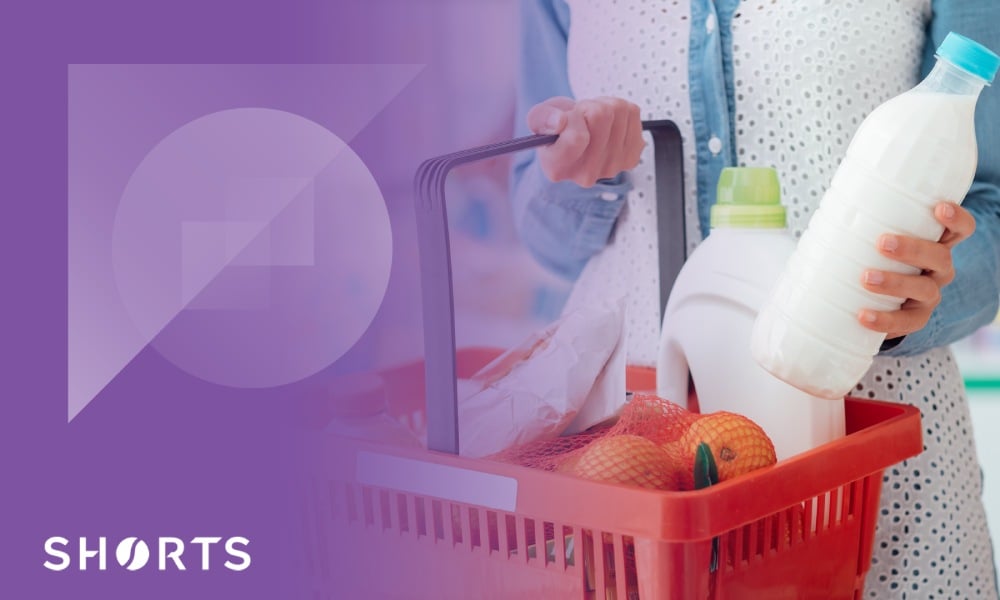
Milk is a staple in most households, but how does VAT apply to it? Here’s what you need to know.
Please be aware that this blog specifically addresses milk sold for off-premises consumption, including products sold in supermarkets, convenience stores, or delivered for home use. More information on milk and other food/drinks supplied as part of catering can be found in our dedicated “VAT on food” blog.
Is there VAT on milk?
Milk is considered to be an essential food item and is, therefore, zero-rated (0% VAT).
This applies to all kinds of dairy milk, including milk from cows, goats, and sheep.
Are there exceptions to the zero-rating of milk?
VAT is almost never simple, and milk products are no different. While milk is typically zero-rated, there are exceptions.
-
Sports drinks (including milk-based ones) are standard-rated (20% VAT).
-
Protein shakes and powders marketed for fitness or muscle building.
VAT on milkshakes
Excluding sports drinks, most other drinks considered to be “preparations of milk” are zero-rated. This includes Ovaltine, Horlicks and most milkshakes.
Milkshakes are a little more complex, with two two different products identified:
- If the product is a flavoured milk-based powder that provides a complete milkshake when mixed with water (such as Nesquik powder), it is zero-rated.
- If it is simply a flavouring, it is typically standard-rated. However, there are several exceptions to this.
A tribunal appeal brought by R Twining & Co, relating to the Max for Milk brand of powders added to milk to make milkshakes,, resulted in a ruling that the strawberry and chocolate-flavoured varieties were sufficiently milk-based to be zero-rated, while the banana-flavoured variety was standard-rated.
Smoothies which comprise a mixture of milk extracts (such as yoghurt), and other ingredients such as fruit juice are zero-rated when they have the texture and nature of a milky drink, or where the main ingredient (other than water) is a milk extract, for example, whey. However, HMRC consider smoothies to be standard rated as beverages where the milk or milk extract content is not predominant and their nature is akin to a fruit drink.
Due to the complexity of establishing the VAT treatment of milkshakes and smoothies, it is advisable to seek advice If the VAT treatment is not clear.
VAT on baby formula
Baby formula is a milk-based powder that is mixed with water to serve. Baby formula is zero-rated for VAT as a food. This includes pre-mixed baby formula, such as the Aptamil Ready to Drink range.
VAT on alternative milks (soy, oat, almond, etc)
Alternative kinds of milk are becoming increasingly common due to the growing popularity of dairy-free products. These products are typically zero-rated as they are deemed necessary replacements to those allergic or intolerant to dairy products. This includes both plain and flavoured varieties of soya, pea, oat, almond, and rice milk.
VAT on milk-based alcoholic beverages
VAT is charged at the standard rate of 20% on all alcoholic beverages, including those which are milk-based. You can learn more about the VAT treatment of alcoholic beverages in our recent blog on the topic.
Get moo-ving on your VAT compliancy
VAT costs can have a significant cost for a business. If you're unsure whether your company meets HMRC's compliance standards, or wish to be more efficient with your VAT costs, then contact Shorts' VAT team for a discussion.

Lynne Gill
My area of expertise is land and property transactions but I have extensive knowledge of both domestic and international VAT and I love complex VAT queries. I have an Honours degree in Business Studies and a VAT legal and technical qualification from the Institute of Indirect Taxation.
View my articlesTags: VAT
